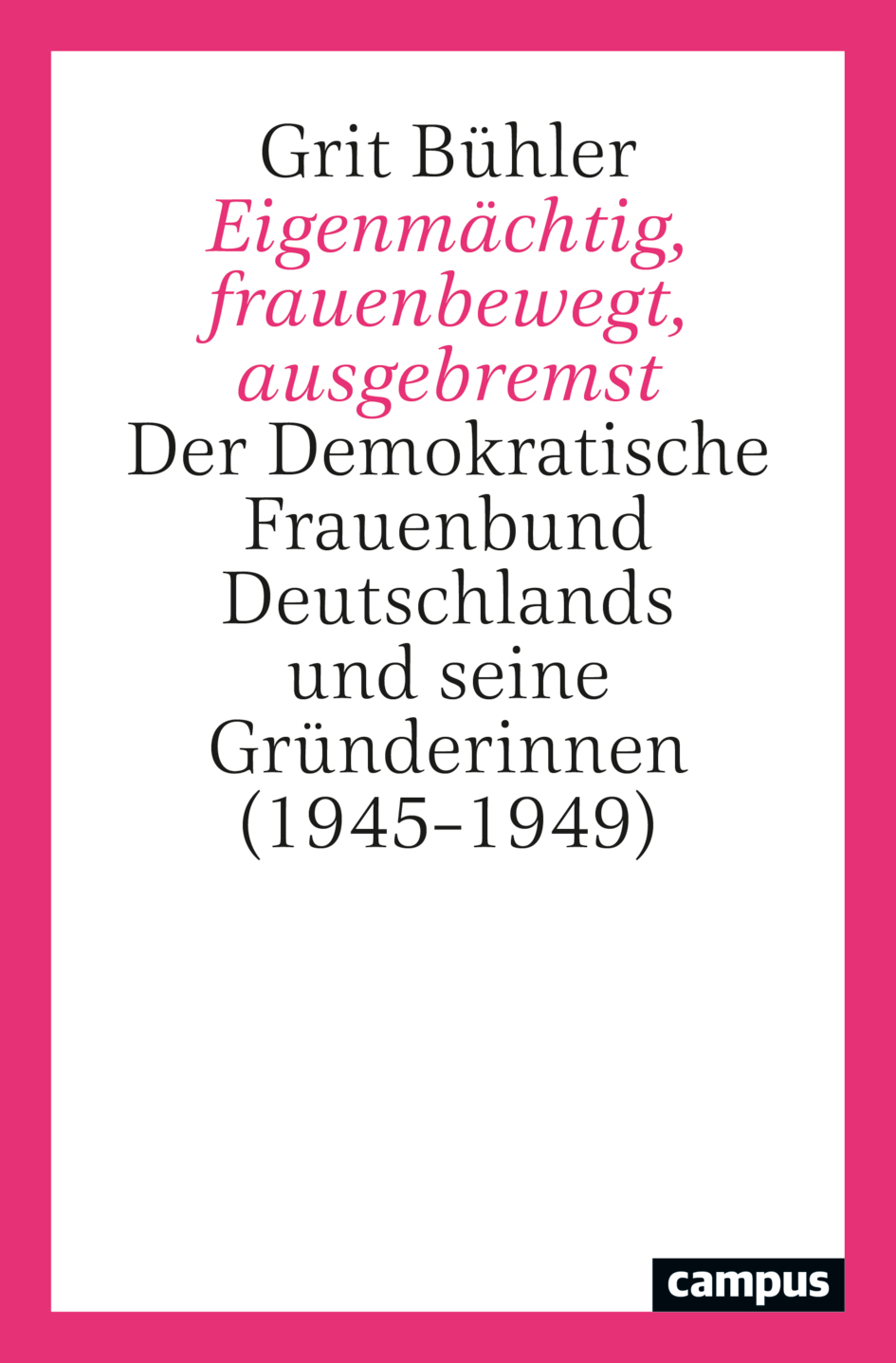Postwar Feminism in the Soviet Occupation Zone
Grit Bühler: Eigenmächtig, frauenbewegt, ausgebremst. Der Demokratische Frauenbund Deutschlands und seine Gründerinnen (1945–1949). 2022.
DOI:
https://doi.org/10.17169/ogj.2023.242Keywords:
Demokratischer Frauenbund Deutschland, DDR, Women's Commitees, Postwar FeminismAbstract
In her study of the Democratic Women's Federation of Germany (Demokratischer Frauenbund Deutschland, DFD), long considered a state-loyal organization of the Socialist Unity Party of Germany (Sozialistische Einheitspartei Deutschlands, SED), Grit Bühler focuses on the first feminist years and the key figures who stimulated the awakening in the women's committees. The thesis of postwar feminism as it is known in the study of women's committees for the Western occupation zones after 1945 is guiding the analysis. Bühler illuminates how the protagonists brought together different women's political positions as a 'sisterly bond' in the Soviet occupation zone, and the increasing interventions of the SED. Thus, the early days of the DFD are brought to the fore for the first time as part of the history of the women's movement and feminism.
References
Bock, Gisela (1986): Zwangssterilisation im Nationalsozialismus. Studien zur Rassenpolitik und Frauenpolitik (Schriften des Zentralinstituts für Sozialwissenschaftliche Forschung der FU Berlin). Opladen: Westdeutscher Verlag.
Frei, Norbert (1995): NS-Vergangenheit unter Ulbricht und Adenauer. Gesichtspunkte einer „vergleichenden Bewältigungsforschung“. In: Danyel, Jürgen (Hg.): Die geteilte Vergangenheit. Zum Umgang mit Nationalsozialismus und Widerstand in beiden deutschen Staaten, Berlin: Akademie, 125–132.
Geipel, Ines/Walther, Joachim (2015): Gesperrte Ablage. Unterdrückte Literaturgeschichte in Ostdeutschland 1945–1989. Berlin: Lilienfeld.
Genth, Renate/Jäkl, Reingard/Pawlowski, Rita/Schmidt-Harzbach, Ingrid/Stoehr, Irene (1996): Frauenpolitik und politisches Wirken von Frauen im Berlin der Nachkriegszeit 1945–1949. Berlin: trafo.

Downloads
Published
How to Cite
License
All contributions in Open Gender Journal are published under the Creative Commons Attribution 4.0 International license. You may freely make use of the corresponding texts in accordance to the conditions of the license (License contract, generally understandable version). There is no exclusive transfer of usage rights ("copyright transfer"). Open Gender Journal does not charge authors any costs for publication (so-called Article Processing Charges, APC) or submission (so-called Submission Charges). Authors are encouraged to share their contributions in other places, such as repositories.













